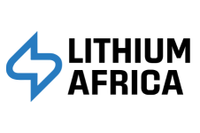Chinese Firm Halts Lithium Tech Exports as Global Supply Chain Shifts Accelerate
Jiangsu Jiuwu Hi-Tech informed customers last month that it would stop exporting a key lithium-processing component known as a sorbent starting on February 1.

A Chinese company has halted exports of filtration equipment used in lithium extraction, reflecting the impact of Beijing’s proposed restrictions on battery and lithium technology exports.
Jiangsu Jiuwu Hi-Tech (SZSE:300631) informed customers last month that it would stop exporting a key lithium-processing component known as a sorbent starting on February 1, Reuters reported on Tuesday (February 18).
The news outlet notes that the move signals Chinese manufacturers are adjusting their practices even before Beijing’s proposed export controls have been formally implemented.
Sorbents are essential in lithium extraction from brine and other solutions. China is the largest producer of these materials, but the scale of the market remains unclear due to limited official data.
China's proposed export restrictions, announced in January, would require companies to obtain government licenses for overseas sales of certain battery and lithium-related technologies, including sorbents.
An anonymous lithium extraction technology company executive said both Jiangsu and Sunresin New Materials (SZSE:300487) — another major sorbent producer — are talking to Chinese authorities about the proposed controls.
China’s Ministry of Commerce has not publicly commented on the proposal since its announcement, but the prospect of tighter restrictions is already influencing corporate decision making. Some industry participants believe the proposed measures are discouraging exports of listed items, particularly to countries perceived as unfriendly.
A China-based international lawyer working with clean energy firms noted that commerce ministry officials have visited companies that could be affected, warning one firm against proceeding with a US$1 billion export deal under negotiation. The lawyer added that banks are requiring additional approvals before financing exports of controlled items.
China’s Ministry of Commerce has not responded to Reuters' requests for comment.
Similar measures have already disrupted global supply chains in other sectors. In December, China announced an export ban on antimony, a critical mineral used in batteries and flame retardants.
Western nations diversifying battery metals supply chains
Potential restrictions on Chinese sorbents has raised concerns among western companies seeking to develop lithium extraction capabilities, particularly oil firms exploring lithium recovery from brine deposits.
More broadly, the uncertainty surrounding China’s export policies aligns with wider efforts by western governments and companies to secure alternative sources of critical minerals.
The US, the EU and other allies have accelerated policies aimed at reducing dependence on China for materials essential to electric vehicle batteries, renewable energy technologies and defense applications.
The Minerals Security Partnership, launched in June 2022, is a collaborative effort among 14 countries and the EU. Its primary goal is to secure supply chains for critical minerals, reducing dependence on any single source.
In the semiconductor industry, efforts to diversify supply chains have also gained momentum.
Under the Biden administration, the US enacted the CHIPS and Science Act, allocating nearly US$53 billion to bolster domestic chip production. This legislation aims to revitalize US semiconductor manufacturing, create jobs and enhance national security by reducing reliance on foreign suppliers.
In Europe, the EU's Critical Raw Materials Act, introduced in 2023, aims to increase domestic production of strategic minerals while establishing partnerships with resource-rich nations outside China. The EU has been engaging with countries such as Chile and Argentina — major lithium producers — to strengthen supply chain security.
Don’t forget to follow us @INN_Resource for real-time news updates!
Securities Disclosure: I, Giann Liguid, hold no direct investment interest in any company mentioned in this article.





